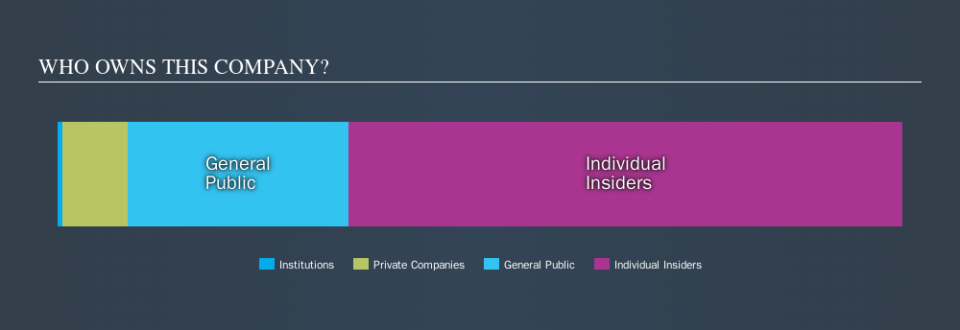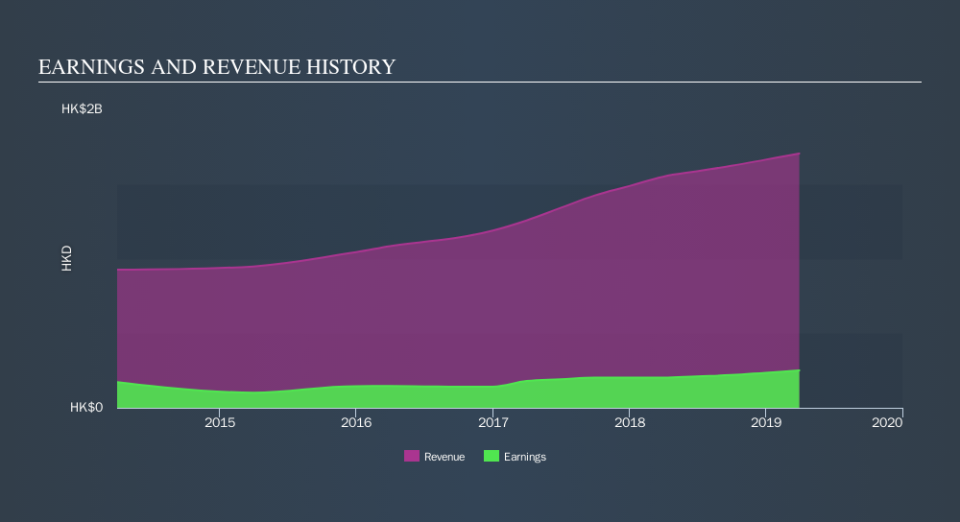Do Insiders Own Lots Of Shares In Jacobson Pharma Corporation Limited (HKG:2633)?

If you want to know who really controls Jacobson Pharma Corporation Limited (HKG:2633), then you'll have to look at the makeup of its share registry. Generally speaking, as a company grows, institutions will increase their ownership. Conversely, insiders often decrease their ownership over time. I quite like to see at least a little bit of insider ownership. As Charlie Munger said 'Show me the incentive and I will show you the outcome.'
Jacobson Pharma is a smaller company with a market capitalization of HK$2.6b, so it may still be flying under the radar of many institutional investors. In the chart below below, we can see that institutions don't own many shares in the company. Let's take a closer look to see what the different types of shareholder can tell us about 2633.
Check out our latest analysis for Jacobson Pharma
What Does The Lack Of Institutional Ownership Tell Us About Jacobson Pharma?
Small companies that are not very actively traded often lack institutional investors, but it's less common to see large companies without them.
There are many reasons why a company might not have any institutions on the share registry. It may be hard for institutions to buy large amounts of shares, if liquidity (the amount of shares traded each day) is low. If the company has not needed to raise capital, institutions might lack the opportunity to build a position. It is also possible that fund managers don't own the stock because they aren't convinced it will perform well. Jacobson Pharma might not have the sort of past performance institutions are looking for, or perhaps they simply have not studied the business closely.
Hedge funds don't have many shares in Jacobson Pharma. There is a little analyst coverage of the stock, but not much. So there is room for it to gain more coverage.
Insider Ownership Of Jacobson Pharma
The definition of an insider can differ slightly between different countries, but members of the board of directors always count. Management ultimately answers to the board. However, it is not uncommon for managers to be executive board members, especially if they are a founder or the CEO.
I generally consider insider ownership to be a good thing. However, on some occasions it makes it more difficult for other shareholders to hold the board accountable for decisions.
It seems that insiders own more than half the Jacobson Pharma Corporation Limited stock. This gives them a lot of power. That means they own HK$1.7b worth of shares in the HK$2.6b company. That's quite meaningful. Most would be pleased to see the board is investing alongside them. You may wish todiscover (for free) if they have been buying or selling.
General Public Ownership
The general public holds a 26% stake in 2633. This size of ownership, while considerable, may not be enough to change company policy if the decision is not in sync with other large shareholders.
Private Company Ownership
We can see that Private Companies own 7.8%, of the shares on issue. It's hard to draw any conclusions from this fact alone, so its worth looking into who owns those private companies. Sometimes insiders or other related parties have an interest in shares in a public company through a separate private company.
Next Steps:
I find it very interesting to look at who exactly owns a company. But to truly gain insight, we need to consider other information, too.
I like to dive deeper into how a company has performed in the past. You can access this interactive graph of past earnings, revenue and cash flow, for free .
If you would prefer discover what analysts are predicting in terms of future growth, do not miss this free report on analyst forecasts.
NB: Figures in this article are calculated using data from the last twelve months, which refer to the 12-month period ending on the last date of the month the financial statement is dated. This may not be consistent with full year annual report figures.
We aim to bring you long-term focused research analysis driven by fundamental data. Note that our analysis may not factor in the latest price-sensitive company announcements or qualitative material.
If you spot an error that warrants correction, please contact the editor at editorial-team@simplywallst.com. This article by Simply Wall St is general in nature. It does not constitute a recommendation to buy or sell any stock, and does not take account of your objectives, or your financial situation. Simply Wall St has no position in the stocks mentioned. Thank you for reading.



